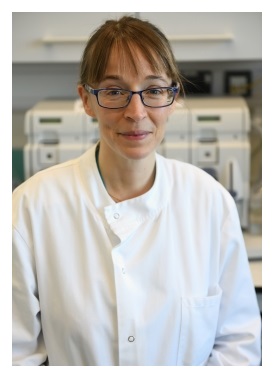Dr Rachel Hurst, member of the Cancer Genetics team at UEA, was recently awarded the Alan Boswell Group Fellowship to support her research into prostate cancer. This three-year fellowship in the Norwich Medical School was made possible thanks to generous funding of £267,400 from the Alan Boswell Group. We talk to Rachel about her work and her new fellowship.
Dr Hurst, why did you join UEA?
I was awarded my degree and PhD, and then moved to the USA to undertake a postdoctoral position at the Medical College of Wisconsin in Milwaukee. After that, I moved back to the UK and completed a postdoctoral position in Cambridge before joining UEA in 2007 to pursue my interest in researching nutrition and prostate cancer. After joining UEA, I knew I wanted to continue to pursue a research career focussing on prostate cancer research, and in 2012 I became part of the Cancer Genetics team with Professor Colin Cooper and Dr Jeremy Clark.
Why did you decide to become a researcher?
Cancer was always something that mystified me. Why does it occur? How can it be cured? I was about ten years old when my dear uncle had to have his leg amputated because of bone cancer (sarcoma). I remember wishing it could be different; that one day there would be a cure for cancer with no suffering.
My passion for research started at school where I loved science and practical sessions in the laboratory. At university, I was thrilled to complete my final year research project on breast cancer. For as long as I remember, cancer research was my main goal. I wanted to try to make a difference, to help just one cancer patient and hopefully many more.
What led you to prostate cancer research?
Prostate cancer is so common. We all know someone we love who has been touched by cancer and, often, prostate cancer, which affects 1 in 8 men. If we can build an understanding of what is causing prostate cancer and other types of cancer, then new potential treatment options can be elucidated with a view to preventing these cancers from being lethal. Or, as is this case with my research, exploring the opportunity to develop tests to detect aggressive prostate cancer early and to stop cancer progression in the future.
Tell me about your role at UEA?
I am very fortunate to be part of the large team coordinated by Professors Cooper and Brewer and Dr Jeremy Clark. Together, we are developing the UEA Prostate Cancer Tests (Tiger and PUR) – two revolutionary new tests to detect aggressive cancer early. The diagnostic tests are currently being developed and finalised, ready for patient benefit within a few years.
I also research bacterial infection and prostate cancer, investigating which pathogens may contribute to development of more aggressive cancer and the mechanisms of action of how the bacteria may contribute to cancer progression.
How will the prostate cancer diagnostic tests you are working on (Tiger and PUR) make a difference?
The Prostate Urine Risk (PUR) diagnostic test is a new, non-invasive test where a urine sample can be analysed to detect if a patient’s prostate cancer may progress more rapidly. When a biopsy is necessary, the Tiger Test uses a small section of tissue to more accurately detect aggressive cancer types early. These tests will not only benefit prostate cancer patients and the clinical team involved in their care, by informing them whether early treatment is needed, but in addition, a urine test like PUR may also help to detect other types of cancers in the future. For example, the urine test could be adapted to also detect bladder or kidney cancer, thus making a difference to a wider group of patients and the clinical care teams.
How has philanthropy made a difference to prostate cancer research at UEA?
Philanthropy and donations have truly enabled us to establish a flourishing research team working with Professor Colin Cooper on prostate cancer. Donors have equipped the laboratory environment with critical facilities and infrastructure, so that scientific advances can be made and delivered rapidly. Ultimately, donors have made this research achievable, and their support will go on to benefit patients within a few years. It is a very exciting time in the research laboratory with the progress being made possible by donations.
How do you feel about being awarded the Alan Boswell Group Fellowship?
I am absolutely delighted and so very grateful for the opportunity of the fellowship funding. It grants the perfect opportunity to contribute to the large team effort on-going at the University, the Norfolk and Norwich University Hospitals and with wider collaborations around the world to develop the Prostate Cancer Diagnostic Tests (Tiger and PUR). I am pleased to take this research area forward, and to develop and publish research on bacterial infection and its role in aggressive prostate cancer. I am also excited to build and pursue new ideas for research going forward to make a difference in the cancer research area. Thank you so very much.
Find out more about prostate cancer research at UEA, or make a donation today.

:focus(1881x1183:1882x1184))
